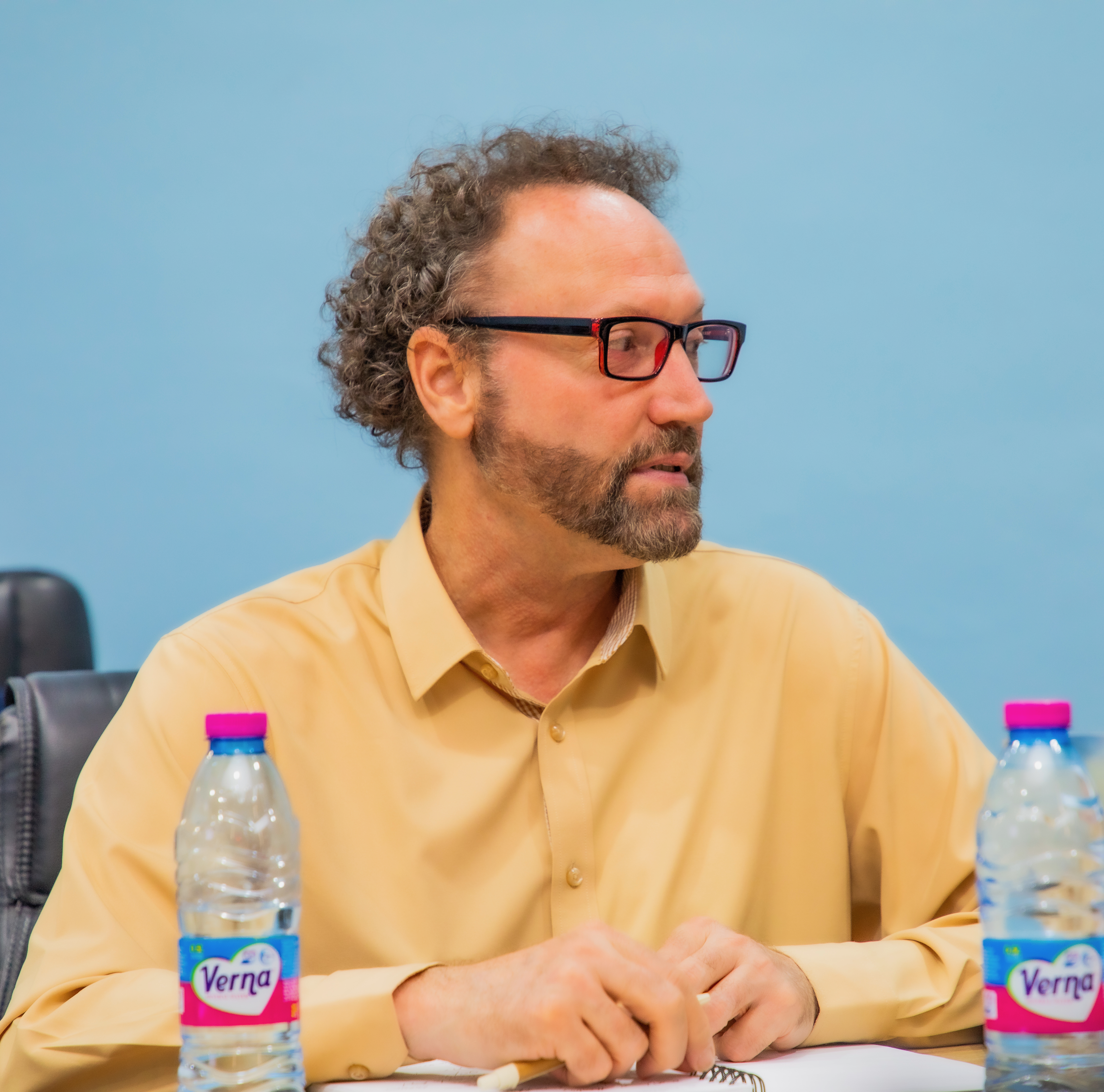KEEP NEWS
Georgia Tech collaborates with KNUST College of Engineering to Promote Education and Research
Published: 03 Aug 2024
Both teams after the meeting with the Provost of the College of Engineering
On 31st July 2024, representatives from the Georgia Institute of Technology (Georgia Tech) paid a courtesy call on the Provost of the College of Engineering, Prof. Kwabena Biritwum Nyarko. This visit marked a significant step towards strengthening the existing partnership between the two institutions, focusing on staff and student mobility, research collaborations, and teaching and learning initiatives.
The delegation from Georgia Tech included Prof. Michael L. Best, Professor of International Affairs and Interactive Computing and Executive Director of the Institute for People and Technology (IPaT), Prof. Alessandro Orso, Professor of Computer Science and Associate Dean for Special Initiatives, College of Computing and Prof. Olufisayo Omojokun, Chair, School of Computing Instruction, College of Computing.
Present at the meeting were Prof. Prof. Emmanuel Frimpong, Dean of the Faculty of Electrical and Computer Engineering, Prof. Francis Kemausour, Dean of the Faculty of Mechanical and Chemical Engineering, Prof. Kwaku Amaning Adjei, Dean of the Faculty of Civil and Geo-Engineering, Prof. Jerry John Kponyo, Project Lead, KNUST Engineering Education Project (KEEP) and Principal Investigator, Responsible AI Lab (RAIL), Prof, Kwadwo Mensah Darwa, Deputy Project Lead, KEEP and Makafui John Bedzrah, Innovation Manager.
The Georgia Tech team highlighted their commitment to fostering collaborations in various areas, including online teaching and research. Prof. Best mentioned that Georgia Tech is recognised as one of the largest producers of AI graduates and sees great potential in expanding its efforts to West Africa. He also highlighted the College of Computing at Georgia Tech's Online Master of Science (OMS) program, which offers a fully online Master's Degree in Computer Science and Cybersecurity. Established a decade ago, this program leverages the same faculty as the on-campus courses and provides certificates upon completion, making it accessible to a global audience, he asserted.
Prof. Emmanuel Frimpong expressed readiness to collaborate and conduct joint research, with certifications from both institutions, highlighting the mutual benefits of such partnerships. He inquired about how practical aspects are administered online. The Georgia Tech team mentioned using hybrid sessions and collaborative tools, which allow students to work across time zones and provide a structured feedback mechanism.
Prof. Kwabena Biritwum Nyarko thanked the team for their visit and tasked both teams to outline detailed collaborative activities to develop a Memorandum of Understanding (MoU) to formalise these collaborations.
Prof. Kponyo led the Georgia Tech team to visit the International Programmes Office (IPO), which coordinates all exchange programs and external relations of the university. The office provides effective organisation and management of collaborations and exchanges.
The team then met at the KEEP Boardroom for a round table meeting with staff and researchers in RAIL. Prof. Kponyo introduced the KEEP and RAIL projects and provided an overview. He discussed the research focus areas: AI, Blockchain, IoT, Cybersecurity, Computational Intelligence, energy, and power systems.
Prof. Kponyo outlined potential collaboration opportunities, such as joint research activities, student and faculty exchanges, data set sharing, joint research grant applications, and mini-conferences, workshops, and seminars. Researchers in the lab introduced ongoing research projects, including rare disease detection, crop disease detection, language translation, and energy efficiency models.

Prof. Michael L. Best mentioned the Africa AI Initiative, which includes local language generation and analysis, and emphasised that a lot can be accomplished together.
The team toured the RAIL lab and Innovation Centre for a first-hand experience of ongoing projects. Innovation Manager Makafui John Bedzrah introduced the team to various innovations, including the Smart Camboo, Smart Irrigation system, and the Centre’s model precision farming system.
The visit concluded with a mutual commitment to further discussions and planning for a fruitful partnership to enhance both institutions' engineering education and research capabilities.
